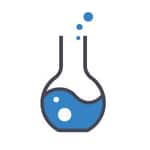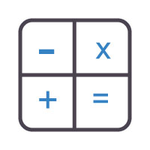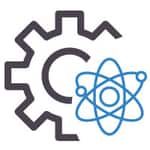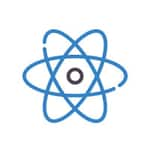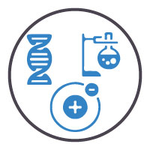
Sports Science Courses: Eligibility, Syllabus, Colleges, Jobs, Avg Salary
What is Sports Science
Sports science is an exciting and rapidly growing field that combines science and athletics to enhance human performance, prevent injuries, and promote overall well-being. Whether candidates are aspiring athletes, fitness enthusiasts, or someone interested in biology and physiology, sports science offers diverse career opportunities through academic and professional courses.
With increasing investments in sports infrastructure, leagues, and athlete development programmes, there is a rising demand for skilled professionals in both government and private sectors. Additionally, careers in academic research, corporate wellness, and international coaching are also gaining momentum, making Sports Science a promising field.
Sport Science is the study of how the body functions during physical activity, exercise, and sports. Sports science seeks to enhance athletic performance, facilitate recovery, and promote overall health in individuals across all fitness levels. It includes disciplines such as:
- Exercise Physiology
- Bio mechanics
- Sports Psychology
- Nutrition
- Motor Control
- Strength and Conditioning
Sports Science Courses Details
Particulars | Values |
Field | Study of physical activity, human performance, and health |
Popular Undergraduate Courses | B.Sc. in Sports Science, B.P.Ed., B.Sc. in Exercise Science |
Popular Postgraduate Courses | M.Sc. in Sports Science, M.P.Ed., MBA in Sports Management |
Diploma/Certificate Courses | Fitness Training, Sports Coaching, Sports Psychology |
Eligibility Criteria | UG- 10+2 from a recognised board (preferably with Science/PE background), 45–50% marks PG- Bachelor’s degree in Sports Science/PE or related field, minimum 50% marks, Diploma- 10+2 qualification; |
Admission Process | Entrance Test for UG and PG Diploma- no entrance test required |
Entrance Exams | UG- CUET (UG), Physical Fitness Test PG- CUET PG, Admission Test university-specific entrance exams |
Career Options | Fitness Trainer, Strength and Conditioning Coach, Analyst, Lecturer |
Top Recruiters | Sports Authority of India, Olympic Teams, Reebok, Decathlon, Cure.Fit, Hospitals, Universities |
Average Salary | Rs. 3 to Rs. 6 LPA (varies by role and experience) |
Specialisations or a Similar One
UG-Level Courses | PG-Level Courses | Diploma Courses |
B.Sc. in Sports and Exercise Science | M.Sc. in Sports and Exercise Physiology | Diploma in Sports Coaching |
B.Sc. in Physical Education, Health Education, and Sports | M.P.Ed. (Master of Physical Education) | Certificate in Fitness Training |
Bachelor of Physical Education (B.P.Ed.) | MBA in Sports Management (for the business side of sports) | Diploma in Sports Psychology |
- | - | Certificate in Athletic Training |
Sports Science Course Colleges
There are several reputed institutions offering Sports Science courses at undergraduate, postgraduate, diploma, and certificate levels. These colleges provide a blend of theoretical knowledge and practical training in areas such as exercise physiology, bio-mechanics, nutrition, and sports psychology.
Colleges | Fees |
Rs. 8.08 Lakhs | |
Somaiya Sports Academy, Somaiya Vidyavihar University, Mumbai | Rs. 3.31 Lakhs |
Rs. 80,000 | |
The Maharaja Bhupinder Singh Punjab Sports University, Patiala | Rs. 73,800 |
Rs. 8 Lakhs | |
Rs. 4.60 Lakhs | |
Delhi Pharmaceutical Sciences and Research University, New Delhi | Rs. 3.32 Lakhs |
- | |
- | |
- | |
- | |
Tamil Nadu Physical Education and Sports University, Chennai | - |
Eligibility Criteria (UG & PG) of Sports Science
Here is a detailed overview of the eligibility criteria for Sports Science courses at the undergraduate (UG) and postgraduate (PG) levels. Admission to PG courses may also involve entrance exams, interviews, or fitness assessments, depending on the institution’s requirements. For diploma courses, there are no entrance exams required.
Course Level | Details |
Undergraduate (UG) | 10+2 from a recognised board (preferably with Science/PE background), 45–50% marks, physical fitness test (for B.P.Ed.) |
Postgraduate (PG) | Bachelor’s degree in Sports Science/PE or related field, minimum 50% marks, entrance exam/interview (varies). |
Diploma/Certificate | 10+2 qualification; no entrance test required for most short-term courses. |
Scope of Sports Science in India and Abroad
The scope of Sports Science is expanding rapidly in India and globally, driven by growing awareness around health, fitness, and athletic performance. It offers diverse opportunities in fields such as professional sports, fitness training, rehabilitation, sports medicine, biomechanics, and psychology.
With increasing investments in sports infrastructure, leagues, and athlete development programmes, there is a rising demand for skilled professionals in both government and private sectors. Additionally, careers in academic research, corporate wellness, and international coaching are also gaining momentum, making Sports Science a promising and future-ready career path.
Course Fees Sports Science
| Minimum Fees | Maximum Fees | |||
|---|---|---|---|---|
| Private | Government | Private | Government | |
| PG | ||||
Course Subjects
Here is an overview of the Sports Science Courses Syllabus at the Undergraduate (UG) and Postgraduate (PG) levels in India. This includes the core subjects and areas typically covered, though exact topics may vary slightly depending on the university. This UG and PG syllabus is offered at the Institute of Sports Science and Technology, Pune.
Sports Science UG Syllabus
The sports science UG syllabus is offered at the Institute of Sports Science and Technology, Pune. UG syllabus for B.Sc. in Sports Science, which typically spans three years (six semesters).
Sports Science UG Syllabus- First Year Syllabus
Semester 1 | Semester 2 |
Fundamentals of Human Anatomy | Introduction to Kinesiology |
Fundamentals of Human Physiology | Introduction to Sports & Exercise Physiology |
Motor Skills & Neurophysiology in Sports | Introduction to Health & Nutrition |
Evolution in Sports | Fundamentals of Physical Education & Sports |
Computer Applications | Fundamentals of Biochemistry |
Athletics (Running Events) | Athletics (Jumping Events) |
Important Olympic Sports: Gymnastics, Fencing, Weight-lifting, Shooting, Archery, Winter Sports: Ice Skating, Ice Hockey, Figure Skating, Curling, Luge | – |
Sports Practicals | - |
Sports Science UG Syllabus- Second Year Syllabus
Semester 3 | Semester 4 |
Introduction to Sport Biomechanics | Tests & Measurements in Sports |
Research Methodology | First Aid in Sports |
Introduction to Sports & Exercise Psychology | Training Methodology |
Exercise Prescription | Strength & Conditioning |
Fundamentals of Athletics (Throwing Events) | Exercise Prescription |
PR & Communication Skills | Yoga for Sports Performance |
Racquet Sports: Tennis, Table-Tennis, Badminton, Squash | Combative Sports: Wrestling, Kabaddi, Kho-Kho, Judo, Karate, Taekwondo, Kick-boxing, Boxing |
Sports Practicals | Sports Practicals |
- | Ball Sports: Football, Basketball, Cricket, Golf, Softball, Volleyball |
- | Sports Practicals |
Sports Science UG Syllabus- Third Year Syllabus
Semester 5 | Semester 6 |
Applied Sports Nutrition & Doping | Applied Sports Bio-mechanics |
Advanced Exercise Physiology | Injury Rehabilitation in Sports |
Applied Sports & Exercise Psychology | Sports for Special Populations & Para-Athletes |
Sports Performance Analysis | Principles of Sports Coaching |
Sports Technology | Relaxation Methodologies |
Exercise Management for Chronic Diseases & Disabilities | Sports Entrepreneurship in the Sporting Context |
Water Sports: Swimming, Water-polo, Canoeing, Rowing, Kayaking | Internship Project |
Sports Practicals | Sports Practicals |
Sports Science PG Syllabus
The sports science PG syllabus is offered at the Institute of Sports Science & Technology, Pune. This is typically structured over two years (four semesters). Students are evaluated via internal assessments, practicals, theory exams, and viva voce.
Sports Science PG Syllabus- First Year Syllabus
Semester 1 | Semester 2 |
Fundamentals of Sports Sciences | Biomechanics in Sports |
Physical Education & Sports | Fitness Assessments |
Human Anatomy & Physiology | Kinesiology in Sports |
Exercise Form & Technique | Sports Rehabilitation & Injury Management |
Sports Nutrition & Doping | Exercise Physiology |
Communication & Presentation Skills | Research Methodology in Sports |
Assignment-1 | Assignment-2 |
Sports Science PG Syllabus- Second Year Syllabus
Semester 3 | Semester 4 |
Exercise Psychology | Applied Strength & Conditioning |
Strength & Conditioning | Principles of Coaching & Instruction |
Sports Technology & Analytics | Performance Analysis & Long-Term Athlete Development |
Health, Safety & First Aid in Sports | Yoga, Aqua Therapy & Relaxation Methodologies |
Sports Medicine | Sociology in Sports |
Research Methodology in Sports | Sports Entrepreneurship |
Internship Project | Research Project |
Careers in Sports Science
A degree in Sports Science opens the door to a variety of exciting and dynamic career options across sports, fitness, healthcare, and education sectors. Certifications and continuous learning show commitment and help keep skills updated with the latest industry trends. Below are detailed descriptions of each of the key job profiles in Sports Science:
Career Options | Descriptions |
Sports Scientist | Sports Scientists apply scientific principles to improve athletic performance, prevent injuries, and optimise training programmes. They use data analysis, physiological testing, and research to support athletes and coaches in enhancing performance. |
Fitness Trainer / Personal Trainer | Fitness Trainers or Personal Trainer works with individuals or groups to design customised workout routines aimed at improving strength, endurance, flexibility, and overall health. They also provide motivation, monitor progress, and ensure exercises are done safely and effectively. |
Strength and Conditioning Coach | Strength and conditioning coaches focus on improving an athlete’s physical performance by developing strength, power, speed, and endurance through structured training programmes. They also play a key role in injury prevention and recovery by ensuring athletes are physically conditioned for their sport. |
Sports Coach | Sports Coaches train individuals or teams in specific sports, teaching skills, strategies, and techniques required for competition. They also manage team performance, motivate players, and often contribute to personal development and sportsmanship. |
Exercise Physiologist | Exercise Physiologists assess the impact of physical activity on the body and develop exercise plans to improve cardiovascular function, muscular strength, and overall fitness. They often work with people recovering from illness or managing chronic health conditions. |
Rehabilitation Specialist | Rehabilitation Specialists help injured athletes or patients recover physical function through targeted exercise, therapy, and recovery strategies. They work closely with physiotherapists, doctors, and trainers to support a safe and full return to activity. |
Sports Psychologist | Sports Psychologists focus on the mental and emotional well-being of athletes, helping them improve focus, manage stress, overcome performance anxiety, and maintain motivation. They play a vital role in team dynamics, confidence building, and mental recovery from injury. |
Upcoming trends
Technology helps tailor training and recovery for optimal results. Opens up new careers in sports analytics, sports tech development, mental coaching, and more. Here is a detailed overview of the Upcoming Trends in Sports Science, great for students, educators, and institutions looking to stay ahead in this growing field:
- Wearable Technology and Smart Devices
- Data Analytics in Sports
- Sports Psychology Integration
- Virtual Reality (VR) Training
- Personalised Nutrition Plans
- Recovery and Rehabilitation Tech
- AI-Powered Coaching Tools
Job Profiles and Top Recruiters
After completing a degree in Sports Science, students can pursue a wide range of career opportunities across fitness, sports, healthcare, and education sectors. Many professionals also find fulfilling careers as Health and Wellness Coaches, especially in the corporate sector, guiding individuals towards holistic well-being through fitness, nutrition, and lifestyle management.
Top Recruiters
- Ministry of Youth Affairs & Sports
- Physical Education Colleges
- Tata Football Academy
- Cure.Fit
- Anytime Fitness
- Physiotherapy & sports rehab clinics
- Sports Mechanics
- HealthifyMe
- Sports Authority of India (SAI)
Average Salary
There are various job profiles available after completing a Sports Science course. One of the most prominent roles is that of a Sports Scientist. Some choose to become Fitness Trainers or Personal Trainers. Academic-oriented individuals can take up roles as Lecturers or Researchers in universities.
Job Roles | Average Salary |
Sports Analyst | Rs. 3.3 Lakhs |
Fitness Trainer / Personal Trainer | Rs. 3.7 Lakhs |
Strength and Conditioning Coach | Rs. 4.9 Lakhs |
Rehabilitation Specialist | Rs. 4.7 Lakhs |
Biomechanics Specialist | Rs. 4.6 Lakhs |
Lecturer / Academic Researcher | Rs. 4.3 Lakhs |
Health and Wellness Coach | Rs. 3 Lakhs |
Required Skillset for Sports Science
To build a successful career in Sports Science, individuals must develop a combination of scientific knowledge, practical expertise, and interpersonal skills. A strong foundation in human anatomy, physiology, bio-mechanics, and nutrition is essential for understanding the physical and biological aspects of sports and exercise.
- Ability to Analyse Data,
- Physical Fitness And Personal Discipline
- Interpersonal And Communication Skills
- Observant, Detail-Oriented,
- Capable Of Problem-Solving
- Empathy And Psychological Insight
- Knowledge Of Technology
Course Curriculum for Sports Science
Over the years, many new elements in sports science have had an impact on sports performances. Technology has also played a vital role in improving sporting performance on and off the field. It is important to understand how the human body functions and the application of different training programmes to gain athletic performance.
The various Sports Science courses aim to impart to students an understanding of the functioning of the human body and its various systems. The knowledge of sports nutrition, strength and conditioning, and rehabilitation programmes is a must for a sports scientist to improve the performance of athletes. These courses aim to teach all these elements with the use of science-backed technologies and assessment tools.
Frequently Asked Questions (FAQs)
Question: How to start a career in sports after 12th?
Answer :
To begin a sports career after 12th grade, focus on relevant courses like Physical Education (B.P.Ed) or Sports Management, or directly pursue training in your chosen sport. Explore opportunities to train with sports academies, join clubs, and network with professionals in the field.
Question: Is sports science a good career in India?
Answer :
Industry Growth: Both degrees are in demand, with sports science in India seeing growth in healthcare, fitness, and sports analytics, while sports management is expanding in leagues, clubs, and corporate sectors. Future Prospects: A B.Sc. prepares you for further studies in physiotherapy or exercise science.
Question: Which subject is best for sports science?
Answer :
Subjects such as biology, chemistry, physics, mathematics, and physical education can be beneficial for pursuing a career in sports science.
Question: What is the future scope of sports science?
Answer :
Graduates can pursue careers as sports coaches, fitness instructors, exercise physiologists, or sports therapists, contributing to various aspects of athlete development and healthcare.
Question: What is the scope of B.Sc sports science?
Answer :
The careers that a sports science degree can lead to: Exercise and Sport Physiologist. Movement analysts/ Bio-mechanists. Trainers /fitness specialists/exercise specialists.




